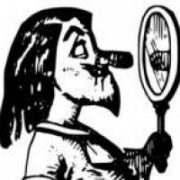The Transition from Postdoc to PI: Part 6 Academic Imposter Syndrome
Part 6: Academic Imposter Syndrome (AIS- pronounced Ace)
by Amanda Rasmussen
Academic Imposter Syndrome (AIS):
(I’ve decided to call it AIS (pronounced ace) because that sounds more positive)
I’m not going to lie, this is something I struggle with on an almost daily basis. There are so many challenges in academia – this first list of things that can kick off a bout of AIS will be familiar to many students and post-docs:
– Bad reviewer comments to manuscripts
– Paper rejections
– Fellowship rejections
– Failed experiments
– Rubbish facilities
None of the above are new to being a PI and I’m very familiar with those but now add to that list:
– Rejected studentship applications
– Bad reviews to grant applications
– Rejected grants (sometimes in spite of good reviews and industry input)
– Biased comments from colleagues (often because they don’t understand physiology, sometimes gender or hierarchy-based comments) Inner monologue: I’ve tried to explain what I do and they still don’t get it. Why am I doing this? Maybe they’re right and what I do is not useful. (Logical response: Industry are interested so it can’t really be unimportant)
– The struggle to find the right person to answer my admin questions, or grant submission questions or budget questions. Inner monologue: Why am I not smart enough to do this? Why don’t I already know this?
– Most of my peers in molecular plant science have all pulled in grants to cover postdocs in their first or second attempts – I haven’t (in spite of excellent and exceptional reviews). Inner monologue: I’m not as successful as them so I guess I’m not good enough. (Logical response: I do ok on smaller grant opportunities so I’m not that useless and most panels are dominated by molecular people so unintentional as it is there is a bias against physiology.)
– Add to that an academic climate where REF drives university decisions (for people outside the UK this is a ranking system for government funding to universities based on research outputs such as 4* publications and real world impact case studies). Inner monologue: If I don’t get the next grant I’ll never make it because I won’t get decent papers without an operating budget. (Logical response: I have just signed a permanent contract so clearly they are happy with my progress (even if I’m not!) and my teaching scores are very high so I AM contributing to the School/University).
Sometimes several of these can happen within a single week or can happen with exciting successes in between which can make the roller coaster ride even more intense!
 When I asked Aaron about AIS he had this story:
I’ll agree with that. I think the trick (and I have not mastered this!) is managing the symptoms and some of the things mentioned in the other parts can help (at least temporarily) with this. The blog by Rebecca Mosher (from the Arabidopsis meeting) is full of great points which may be particularly helpful for early career researchers! For me, even though my instinct is to hibernate in times of intense AIS, I make an effort to call a lot more on mentors and friends and I have (not-so-subtle) reminders like the post card below placed in visible locations. |
“I keep an email folder called “Awesomeness”. I store all the positive emails there, including manuscript acceptances, good reviews, my PI job offer, thank you emails from people I’ve mentored, anything that makes me feel achieved. When I hit a slump, I read these emails.” – Kaisa.
Kaisa also comments:
“Often when I work long periods without talking about my research to others, I lose the big picture and start doubting if my research is interesting. Maybe I made the impact and interest all up? The best cure for this, for me at least, is regular conference attendance and presenting my work!”.
A last bit of advice from Aaron:
“The other thing that I would recommend is to write everything that you do down as you go (ok the bigger things. One thing people seem to forget is reviewing (what journal, how many per year)). Here we are made to have a giant CV (Biosketch) that includes everything that you ever did in science (at least posters and papers before the faculty position) and then every teaching, outreach, student, award, etc. thing I ever do here, such that it can be evaluated later for Tenure and promotion. There are things that seem unimportant to us, that can be very important to those higher up at the university and sometimes a long list of things is good. I think my habit of doing this happened as I approached the final day to turn in my CV for tenure and I kept updating it almost every day to squeak out every last drop of value that I could. Since then, I am still in the habit of up-dating CVs and things like this. It is sorta a nervous (but productive) habit. What it really helps with is when you need an updated CV (etc.) it is ready to go and this has helped with some things that were quite last minute.”
This is also good for calming the AIS symptoms!
AIS action points: 1) meet regularly with mentors; 2) keep a list of everything you do; 3) tell the negative voices that meet in your head to sit down and shut up!
Finally don’t forget it IS exciting – see here for a reminder that you’re not alone and there are great things about being a PI!
LINKS:
– Part 3: Hitting the ground running – but not too fast!



